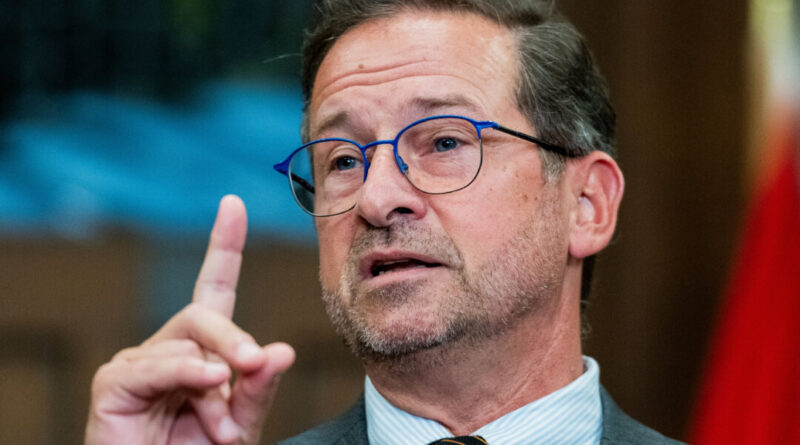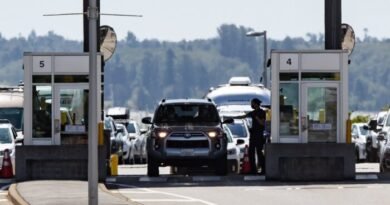Bloc Québécois Initiates Discussions with Other Parties to Overthrow Government Following the Expiration of Deadline
The Bloc Québécois says it will begin talks with the other parties to bring down the Liberal government, after it didn’t provide support to two private members’ bills by the Bloc’s deadline.
“The government was invited to pass into law two bills that came from the Bloc Québécois, that were approved and supported by all parties in the Parliament,” Leader Yves-François Blanchet told reporters in Parliament. “They had until Oct. 29, which is today, to deliver that, which they did not do.”
Blanchet told reporters that his party had given the Liberal government five weeks to pass the bills, related to raising pensions and keeping supply management out of trade negotiations, so that there would be time for an election before the end of the year. He said his party is ready for an election and “might be expecting that with enthusiasm,” and added that while Quebecers may not want an election, “they will understand that this is where we are now.”
The Conservatives have said that getting the documents is important for ensuring transparency.
Prime Minister Justin Trudeau responded that it was clear “who is here to play petty politics and who is here to deliver for Canadians.”
When asked about Blanchet’s comments on Oct. 29, Deputy Prime Minister Chrystia Freeland said the Liberal Party was ready for an early election. Freeland added that the Liberals’ communication lines with the Bloc remain “open” and that when it came to the party’s demands on seniors’ pensions, the federal government was “proud of our record when it comes to supporting seniors in Canada.”
Non-Confidence Motions
The Liberal government has faced two unsuccessful confidence votes since the House of Commons returned in September. In both cases, the Conservative motion failed after the Liberals, Bloc Québécois, and New Democrats voted against them.
Even with the Bloc signaling it will vote in favor of the next non-confidence motion alongside the Tories, it would still not be enough to bring down the government and trigger an election. The Conservatives’ 119 MPs and the Bloc’s 33 MPs would fall short of the 169 MPs needed for a majority, as long as the NDP’s 25 MPs continue to vote with the 153 Liberal MPs.
The New Democrats have so far not indicated that they will vote against the government, with Leader Jagmeet Singh repeatedly saying they will decide on each vote on a case-by-case basis. However, the party could choose to abstain from the vote, which would give the Tories and Bloc a majority if the two Independent MPs also voted alongside them.
Liberal MP Ken McDonald told reporters on Oct. 23 that in regards to a non-confidence motion, “that’s something I would have to consider.”





